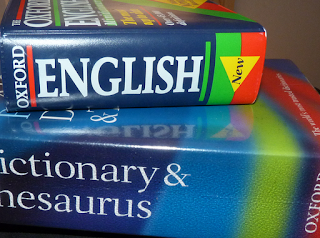I have the privilege to have a friend that owns, designs and manufactures swords and knives that grace the covers of some of my books and short stories (and hopefully more to come). This is an interview that he kindly consented to - after some persuasion on my part ;-)
 Hi Dennis, thank you for letting me tap your brains on knife and sword making.
Hi Dennis, thank you for letting me tap your brains on knife and sword making.
Linzé: What
kinds of knives and swords do you design and manufacture? Any
particular reason why?
Dennis: Knives:
I like to design and manufacture folding knives and fixed blades
leaning towards classical designs. I use antique knife designs of
European and Mediterranean origin as inspiration for my designs. I am
fascinated by history; especially ancient civilizations.
Nevertheless, I also do designs conforming to more hunting knife
requirements; but without compromising that old-world look. I prefer
to work in Damascus steel; not only because of the ancient origins of
this steel, but also because of its pure beauty.
Swords:
I prefer to design and manufacture swords that can be considered
historically accurate. I am especially fascinated by European,
Ancient Grecian and Roman swords designs. Some of my swords are
interpretations or amalgamations of various design aspects in ancient
swords that fascinate me. I am for instance quite drawn to short
leave-shaped blade designs. So whether it be a hoplite, gladius,
broadsword or something suited to ‘Lord of the Rings’, I am sure
I must have held and handled all of them in previous lives.
Linzé: I
have noticed that they are particularly sharp, so they are real
blades, not only for decoration?
Dennis: All
my blades are made to use, whether it be for hunting, food
preparation or war. There is no sense in making a blade only for
decorative purposes.
Linzé: Please
tell me about the skills you need to make knives and swords. Did you
need special training to learn these skills?
Dennis: I
didn’t and there are certainly knife makers more experienced than I
am. I have been making knives and tools since an early age. I am
essentially self taught.
Linzé: Would
you consider it to be an art? Why?
Dennis: Any
skill able to transform materials in raw form into something of
beauty can be considered art. Knife and sword making therefore can be
nothing else but art.
Linzé: Do
you need complex or special tools for the manufacturing of the
blades?
Dennis: It
depends on the methods that you use. There are essentially two
methods of knife making: stock removal or forging. I prefer the last
mentioned. A small amount of stock removal is still required. The
basic tools required are a forge to heat the steel, steel tongs to
handle the hot steel billets, a large anvil, some hammers and basic
forging tools, belt sander, sandpaper, files and polishing buff.
Linzé: You
use Damascus steel for your blades. Why this kind of steel?
Dennis: Damascus
steel is ancient. Damascus steel has character and unique beauty.
Each Damascus steel knife and sword is unique; fingerprinted through
a forging process that cannot ultimately control the material flow.
Damascus steel exemplifies the pinnacle of ancient metallurgy.
Damascus steel was rare in ancient times and remains rare today. I am
enthralled by it, and so are my customers.
Linzé: I
have noticed that the handles of the blades are also made of
different materials. How do you decide which material is best for the
type of blade?
Dennis: Blades:
Swords able to withstand the rigours of battle must be made in carbon
or Damascus steel. I use both. Stainless steel is not ideal for this
application.
Handles:
I prefer to use natural materials with character: bone, hardwoods,
horn…..I like brass, red copper and again, Damascus steel.
Linzé: You
have also made rings from this steel. Is it a difficult material to
make jewellery with? How do you deal with the problem that this is
not a precious metal and could corrode when in constant contact with
skin and the environment? (Note from Linzé: the rings can be seen on
the cover of HUNGER)
Dennis: The
steel (in annealed form) can only be worked on lathe. The pattern is
brought forth via etching with diluted Ferric Chloride.
Some
people have oilier skins that preclude rusting from taking place. My
own Damascus ring has been worn constantly for two years without rust
damage. Generally a smear of Vaseline also helps. It is a lifestyle
decision and I prefer the beauty of the basic beauty of Damascus over
that of gold or platinum. It is not made to last forever; but neither
are we.
Linzé: If
someone would like to order a knife or sword, how can they can do
that?
Dennis: They
can contact me via my website. I don’t make any custom knives. I make what I
want and sell these. My business has grown so much, that I subcontract work to other knife makers on many of my more
popular designs.
Thank you, Dennis, for the information and allowing Francois Venter to take the photographs of the blades. PS: I love my Damascus ring, too!











